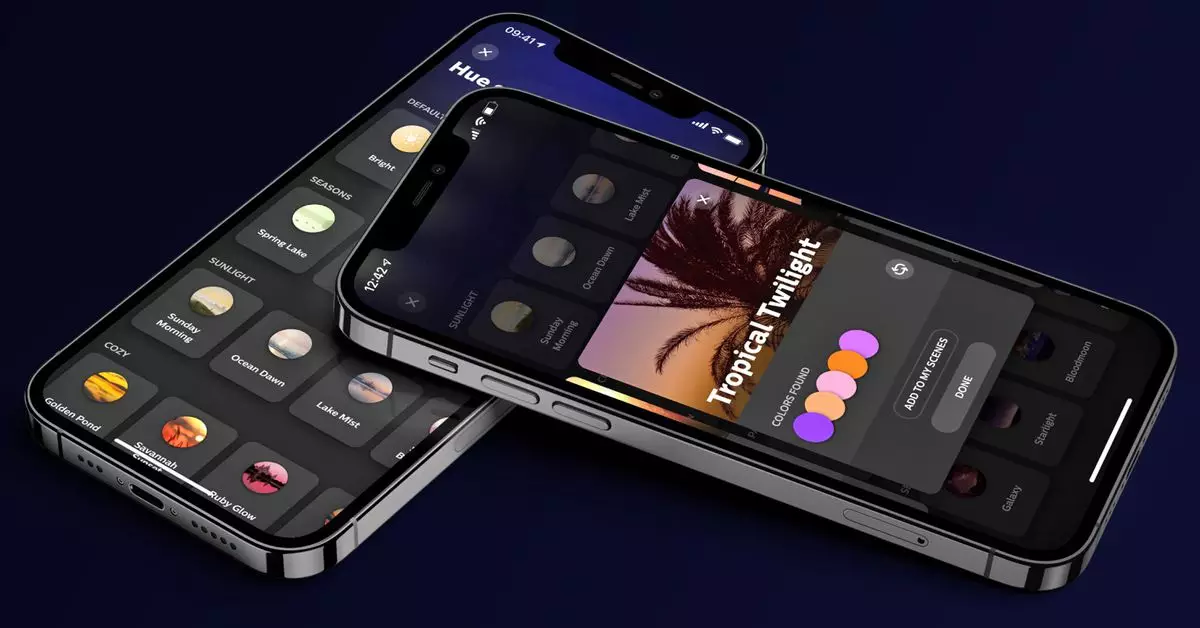In a bold move to enhance user experience, Philips Hue has announced a new feature that employs generative AI to transform the way consumers approach mood lighting. This groundbreaking assistant will enable users to create personalized lighting scenes tailored to specific occasions, moods, or aesthetics, promoting a more immersive and customizable ambiance in homes. The ability to interact with lighting through both typed commands and voice prompts marks a significant stride in smart home technology.
The newly designed AI lighting assistant, set to be unveiled in the first quarter of 2025, allows individuals to effortlessly generate lighting themes by simply requesting them through the Hue app. For instance, users might say or type, “Set the scene for a cozy movie night,” and the assistant will either select from existing options or invent a novel scene based on the directive. This dual method of input—text and voice—ensures accessibility, catering to diverse user preferences. The system’s capability to adjust parameters like brightness and color further empowers users, facilitating a hands-on approach to personalizing their lighting environment.
Philips Hue’s introduction of an AI-driven assistant is part of a broader trend in the smart lighting industry. Other brands, such as Govee and Nanoleaf, have already introduced their versions of AI-assisted lighting solutions. Govee’s AI Lighting Bot offers similar features, providing dynamic light adjustments based on voice commands. Meanwhile, Nanoleaf’s “Magic Scenes” utilizes a different approach, limiting interaction to typed phrases. Despite this competitive landscape, Philips Hue aims to distinguish itself by integrating comprehensive voice and text commands that enhance user engagement and interactivity.
The AI lighting assistant is not the only innovation showcased by Philips Hue during its recent announcement. The company has also revealed that their Hue Sync TV app will now be compatible with LG TVs, allowing synchronized experiences between lighting and visual content. Additionally, the new Philips Hue Datura ceiling light—a versatile lighting fixture that enables individual control and customization of its color effects—will soon be available in the U.S., priced at $299.99. These enhancements not only solidify Philips Hue’s commitment to advancing smart home technology but also demonstrate their ambition to create an integrated ecosystem of products.
Philips Hue’s forthcoming generative AI assistant represents a significant leap in the customization of lighting, reflecting a broader shift towards personalized technology in the smart home sector. By allowing users to manipulate their lighting through intuitive commands and AI-driven suggestions, Philips is setting a new standard for user experience. As innovations continue to emerge, consumers can anticipate increasingly sophisticated technologies that cater to their preferences while redefining how ambiance is crafted in their living spaces.

